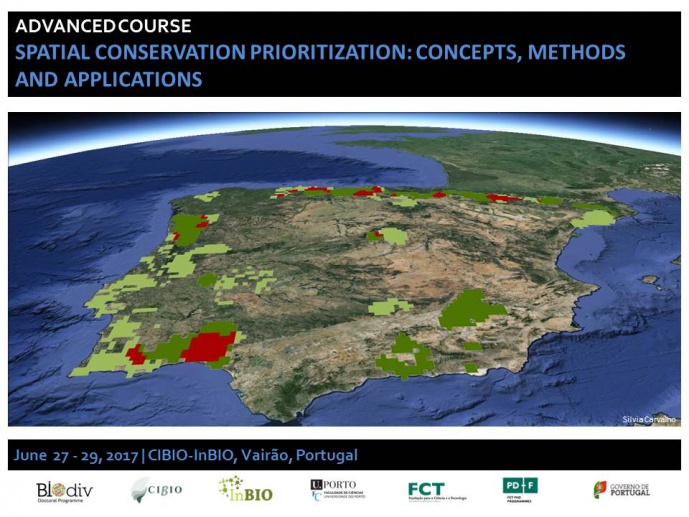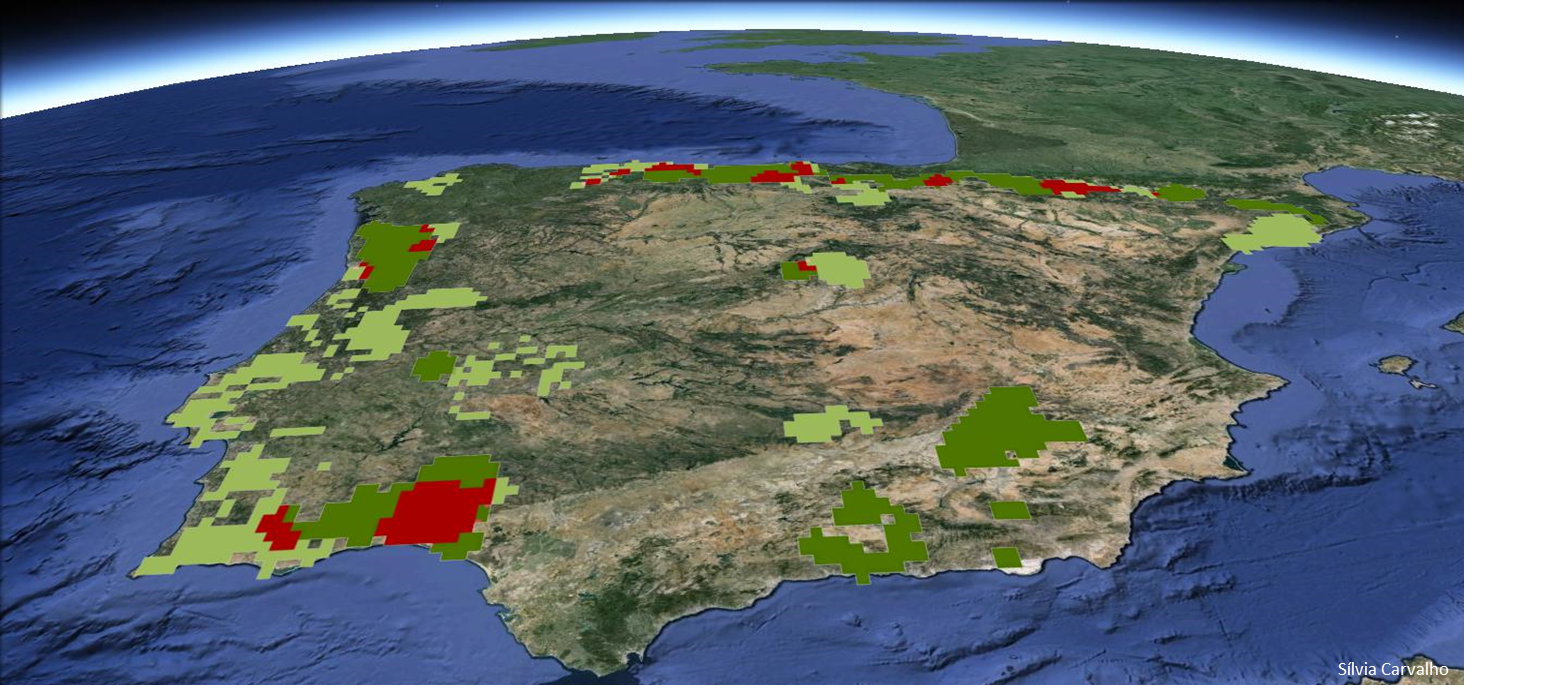ADVANCED COURSE: SPATIAL CONSERVATION PRIORITIZATION: CONCEPTS, METHODS AND APPLICATIONS


Spatial conservation prioritization is a relatively new field of biology which uses quantitative techniques to generate spatial information about conservation priorities. Over the last years, several methods and tools have been developed to aid optimization of spatial conservation decisions. Two of the most popular tools are Marxan and Zonation, which solve two different mathematical problems: the minimum set and the maximal coverage, respectively.
At the end of this course participants will:
- Recognize the urgent need to protect biodiversity efficiently;
- Understand the main concepts underpinning spatial conservation prioritization;
- Distinguish the two major conservation problems: minimum set and the maximal coverage;
- Understand the Marxan mathematical formulation and optimization method.
- Be able to use Marxan to identify priority conservation areas;
- Understand Zonation framework and cell-removal rules;
- Be capable of identifying spatial conservation priorities using Zonation;
- Understand that basic conservation optimization methods can be adapted to more complex ecological problems including directional and dynamic ecological systems and applied to different levels of the biodiversity hierarchy: from genes to ecosystem services.
PROGRAMME
June 27th
9h45-12:45
Lecture
The importance of conserving biodiversity. The Convention on Biologic Diversity, Aichi Targets and current status of protected areas.
Key concepts in systematic conservation planning: comprehensiveness, representativeness, surrogacy, adequacy, persistence, cost-efficiency, complementarity, irreplaceability and flexibility.
Mathematical characterization of conservation prioritization problems: minimum set vs maximal coverage.
Types of conservation features.
Introduction to Marxan software:
- Principles of simulating annealing;
- The Marxan objective function.
14h45-17:45
Practice
Using Marxan Software (part I)
- Create planning Units
- Create Marxan Input files
June 28th
9h45-12:45
Practice
Using Marxan Software (part II)
- Understand and calibrate Marxan parameters
- Display Marxan output and interpret solutions
- Run Marxan in batch mode
- Import Marxan solutions to R for further analysis
14h45-17:45
Lecture
Introduction to Zonation framework and software
The Zonation meta-algorithm and cell-removal rules
Practice
Using Zonation (part I)
- Create Zonation Input files
- Understand zonation parameters
- Run Zonation in batch mode
June 29th
9h45-12:45
Practice
Using Zonation (part II)
- Analyze Zonation results
- Post processing analysis and options
14h45-17:45
Lecture
Advanced applications of spatial conservation prioritization:
- Planning for freshwater ecosystems using directional connectivity
- Planning over time accounting for dynamic threats (e.g. climate change)
- Planning for different hierarchical levels of biodiversity from genes to ecosystems
General Discussion
COURSE INSTRUCTORS
Silvia Carvalho - CIBIO-InBIO | THEOECO
Virgilio Hermoso - Centre Tecnologic Forestal de Catalunya (CEMFOR - CTFC)
INTENDED AUDIENCE
The course will be open to a maximum number of 25 participants.
Priority will be given to:
- 1st year and other PhD students attending the BIODIV Doctoral Program;
- PhD students attending other courses;
- Other post-graduate students and researchers.
REQUIREMENTS
Basic knowledge of Geographic Information Systems (e.g. QGIS) and R language for statistics (R: www.r-project.org) is recommended. All participants must bring their own personal laptop.
REGISTRATION
Registration deadline: May 15, 2017.
Participation is free of charge for BIODIV students | 65 € (students) / 125 € (other participants). CIBIO members will have an additional discount of 20%. Does not include lunch or coffee breaks.
To register, please send an e-mail accompanied by your short CV (max. two A4 pages) to post.graduation@cibio.up.pt. Please refer your status (PhD student, MSc Student, Other) and the University to which you are affiliated.
![]()